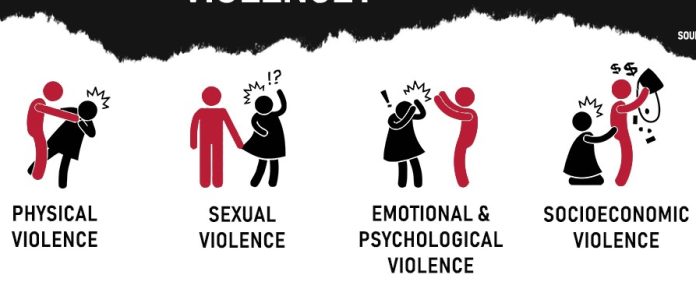The Minister for Women Affairs, Imaan Sulaiman-Ibrahim said 30 per cent of Nigerian women and girls between the ages of 15 to 49 have experienced physical or sexual violence at some point in their lives.
Sulaiman-Ibrahim disclosed this in Abuja on Monday, during a press briefing and flag-off ceremony to mark the commencement of the 16 days of activism against gender-based violence,themed, “Towards Beijing +30: Unite to end violence against women and girls”.
Highlighting the importance of media partnership in the campaign against gender-based violence against women and young girls, Sulaiman-Ibrahim noted that the “growing trend” of GBV “represents a gross violation of human rights and undermines the very fabric of our society”.
She called for a multi-sectoral and multi-stakeholder approach in addressing the pervasive issue of GBV, disclosing that all 36 states of the federation had domesticated the Child Rights Act (2003), while 35 states had domesticated the Violence Against Persons Prohibition Act (2015).
“As you are already aware, the statistics before us on gender-based violence in Nigeria remain deeply troubling. Even as we embark on this campaign today, somewhere in a community, a little child has just been abused, and a young girl’s life is at risk, all for no just cause. Current reports indicate that 30 per cent of Nigerian women and girls aged between 15 to 49 have experienced physical or sexual violence at some point in their lives”.
“The growing trend is unacceptable and represents a gross violation of human rights and undermines the very fabric of our society. It prevents women and girls from achieving their full potential and hinders our nation’s progress toward inclusive development. The role of our media partners in this campaign is crucial. As we observe the 2024 Unite Campaign in Nigeria, we must collectively adopt a multi-sectoral and multi-stakeholder approach to address this pervasive issue”.
“Our campaign will focus on key activities which include community mobilization and education to enable us to intensify awareness campaigns to challenge harmful cultural norms, stereotypes, and practices that perpetuate violence. No doubt, prevention begins with education. We will continuously engage traditional and religious leaders as community gatekeepers. We will strengthen legislation and policy implementation. We are glad to note that as of today, Bauchi state has finally domesticated the Child Rights Act (CRA 2003) bringing the total to 36 states, while 35 states have domesticated the Violence Against Persons Prohibition (VAPP) Act 2015”, she said.
The Minister also stated that there were 47 Sexual Assault Referral Centres across 22 states of the Federation, as part of efforts to provide medical care, psychosocial support, and empowerment opportunities for victims of GBV.
Speaking earlier, the Permanent Secretary of the Ministry of Women Affairs, Gabriel Aduda, urged stakeholders to move beyond the rhetoric of the days of activism, but instead strengthen actions, and deepen their resolve to address the root causes of GBV.
“Every law we enact, every program we implement, and every survivor we empower brings us closer to a Nigeria where women and girls can live free from fear and violence”, he said.


